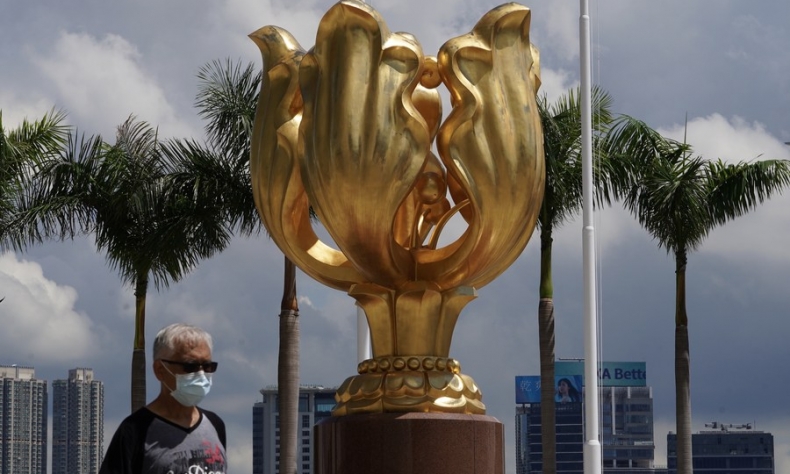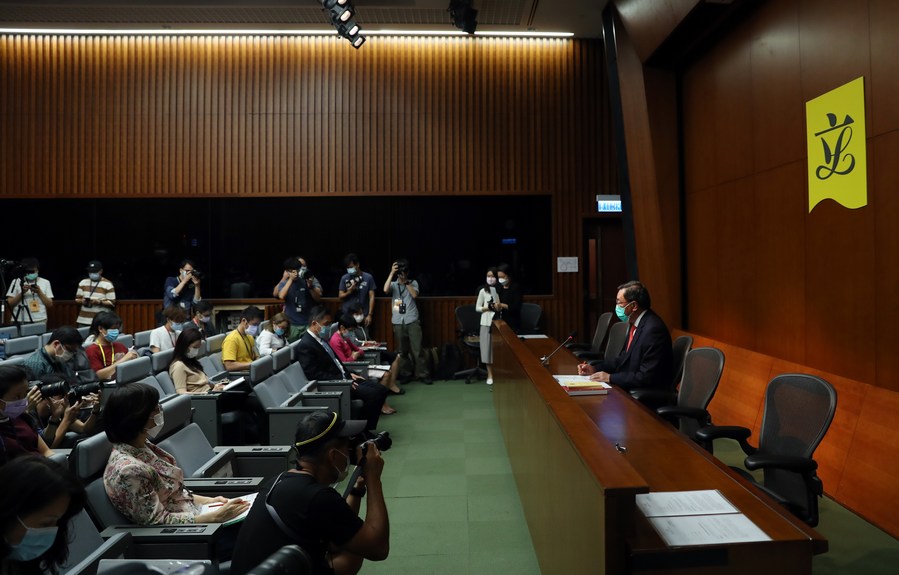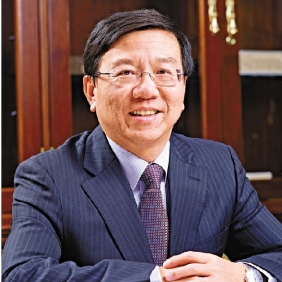Issues Concerning the Postponement of the Seventh LegCo Election

The decision gives a precious opportunity to members of the ‘opposition parties’ to reflect on their responsibilities and act, not with the purpose of simply opposing the Government, but making constructive proposals and suggestions for the best interest of the city and the people within it.
On July 31, 2020, in view of the situation related to COVID-19 pandemic, Hong Kong Special Administrative Region’s Chief Executive Carrie Lam announced that the seventh Legislative Council (LegCo) election, originally scheduled for 6 September, 2020, would be postponed for one year.
Before the decision was announced, the Chief Executive submitted a report concerning the postponement of the seventh LegCo election to the Central Government. The report stated that the situation related to COVID-19 would seriously affect the elections and stated a joint proposal by the Chief Executive and the Executive Council to invoke the Emergency Regulations Ordinance for the purpose of postponing the elections of the seventh LegCo for at least one year. The report further asked the Central Government to submit a motion to the National People’s Congress Standing Committee (NPCSC) on the precise arrangements during the one-year postponement.
On August 8, the State Council submitted the motion to the NPCSC to request a decision on the continued operation of the sixth term of the LegCo. The Standing Committee of the Thirteenth National People’s Congress deliberated on that motion at its Twenty-first Session and decided to allow the Sixth LegCo to continue with the discharging of its duties for no less than one year.
Legitimate reason for the postponement
However, as is always the case, members of the “opposition parties” simply disregarded the safety of life and incited some people to oppose the postponement of election. In my view, their words and actions must be criticized for the following legitimate reasons.
First, the announcement of the postponement by the Chief Executive came at a time where there was a surge in COVID-19 cases, and the situation was far from optimistic. In response, the Government had tightened its pandemic prevention restrictions, such as limiting public gatherings to two individuals at a time, and placing a ban on dining-in at restaurants after 6 p.m. Whilst the significance of the elections cannot be questioned, it is at these times where the safety of one’s life should accorded with the same respect. Under current election arrangements, the frequent contact and interaction between polling staff and electors which increase the risks of spreading the pandemic virus, and would also counteract the Government’s measures for social distancing.
Secondly, a large number of voters have to stay in the mainland and overseas due to the epidemic, and would not be able to return to Hong Kong in view of the border control measures. Their voting right will be deprived if the election is not postponed.
Article 2(1) of the Emergency Regulations Ordinance states: ‘On any occasion which the Chief Executive in Council may consider to be an occasion of emergency or public danger he may make any regulations whatsoever which he may consider desirable in the public interest.’ In so far as the serious risks to public safety is justified, this particular legislation also gives authority to the Chief Executive, together with the Executive Council, to postpone the seventh LegCo election.

New constitutional issue
Even though the postponement of the seventh LegCo is for legitimate reasons, the most pressing legal issue regarding the postponement of the seventh LegCo elections is how to resolve the lacuna in the legislature of Hong Kong. According to Article 66 of the Basic Law, the LegCo is the only legislature of the Region. According to Article 73, the LegCo shall exercise the important powers and functions such as to enact, amend or repeal laws, to examine and approve budgets introduced by the government, to approve taxation and public expenditure, etc. The prolonged absence of a legislature, would no doubt seriously jeopardize the normal operations of the administration and society at large.
This one-year vacuum is also an unprecedented constitutional issue since the handover of Hong Kong from British ruling in 1 July 1997. The only article in the Basic Law which deals with the legislative term is Article 69. It states that the term of office of the LegCo shall be four years, except the first term which shall be two years. However, this article does not provide clues on how to deal with a gap in the legislative term. As a starting point, one could look to Article 158, which states that the power of interpretation of this Law shall be vested in the NPCSC. Yet as the NPCSC can only do the interpretation in the case if a provision of the Basic Law is vague. The NPCSC is unable to do the interpretation if the Basic Law is silent on how to deal with the issue of one-year vacuum. Thus, the best solution is to request the NPCSC to make a relevant decision to resolve the constitutional issue.
According to the Constitution of the PRC, the NPCSC is vested with the authority to deal with a special matter and to make a relevant decision on that matter. Obviously, how to deal with one-year vacuum is a special matter and can be decided by the NPCSC. Furthermore, according to the Constitution and the Basic Law, the decision made by the NPCSC is a binding one and,not to be subject to judicial review in Hong Kong.
On August 11, the Standing Committee of the Thirteenth National People’s Congress decided to let the Sixth LegCo continue to discharge its duties for no less than one year. This decision set out two principles. Firstly, all members of the Sixth LegCo would be able to continue in their current capacities. Secondly, this is a postponement of seventh LegCo election, and as such, the term of office of seventh LegCo remains at four years.
All members of the LegCo shall discharge their duties zealously
The NPCSC has not yet deliberated on whether the four members of the sixth LegCo who have been disqualified for the seventh LegCo election could continue to discharge their duties. Whilst some may question whether the four members who have been disqualified for the seventh LegCo election, would diligently discharge their duties during the one-year time. I would argue that the merit of this decision lies in the fact that it provides these four members with an opportunity for redemption. If these four members continue to advocate or support “Hong Kong Independence”, they would not only be disqualified for the seventh LegCo election, but also be possibly pursued legal responsibility in accordance with the Hong Kong National Security Law. I also believe that the decision gives a precious opportunity to members of the “opposition parties” to reflect on their responsibilities and act, not with the purpose of simply opposing the Government, but making constructive proposals and suggestions for the best interest of the city and the people within it.
Forward-looking
Following the announcement of the abovementioned decisions by the NPCSC, the House Committee of the LegCo held a formal meeting on August 28, 2020. Members discussed the situation related to the pandemic and relevant countermeasures taken by Hong Kong SAR Government. Whilst the smooth conduction of this meeting shines a positive light on the relationship between members of the LegCo and Government, only time can tell how this unique year of LegCo will unfold.
The author is a Hong Konger and Council Member of Chinese Association of Hong Kong & Macao Studies.
 Facebook
Facebook
 Twitter
Twitter
 Linkedin
Linkedin
 Google +
Google +



